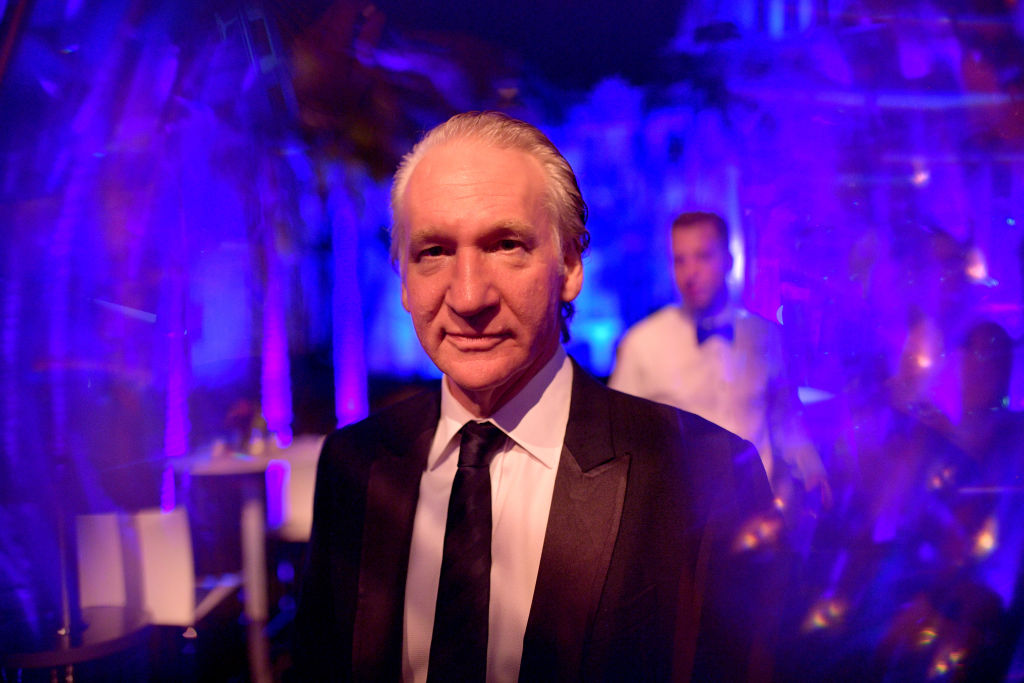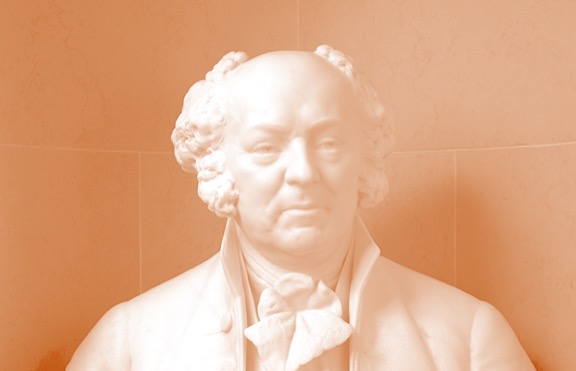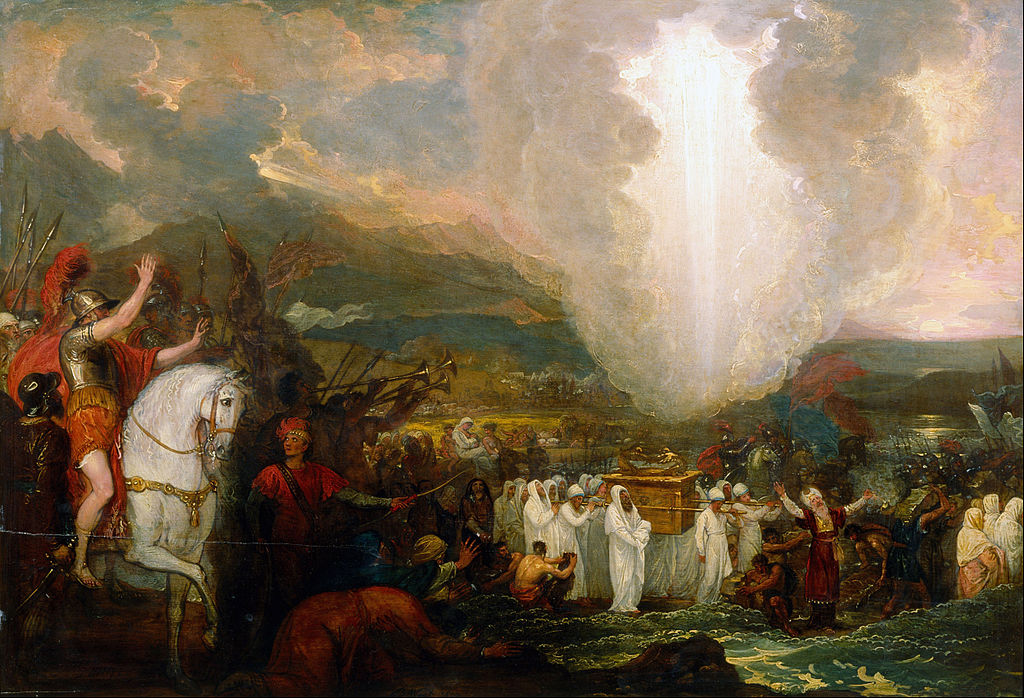Part II: Honor and self-constraint can stave off tyranny.
On Religion, Bill Maher Is Wrong

Rejecting organized religion doesn't mean rejecting religion itself.
American religiosity is an old question. The country was settled by Bible-thumping fundamentalists, founded by God-believing Deists, and offered the faithful around the world the promise of free exercise of whatever religion they wanted to practice. Even today, the percentage of Americans who report regular religious observance is significantly higher than in any other highly-developed country.
At the same time, America has seen a sharp rise among the “nones,” or people who report that they have no religious affiliation. The increase among the disaffiliated has delighted many so-called “rationalists,” or “Brights” as they like to call themselves, who see it as evidence that America is finally seeing the light of pure, godless Reason.
On a recent episode of Real Time with Bill Maher, the host discussed the rise of atheism in America. The contrarian comedian, himself a fervent non-believer, argued that the country is in desperate need of a National Atheist Day. Why? Because almost one-third of Americans, according to Maher, are atheists. But his facts are wrong.
In a bid to deliver a compelling take on religion in America, Maher inaccurately referenced this Pew report that says roughly three-in-ten U.S. adults are now religious “nones.” Maher appears to think that “none” is a synonym for atheist. It’s not. As the Pew report notes, “nones” describe themselves as “atheists, agnostics or ‘nothing in particular’ when asked about their religious identity.”
This is a crucial point that deserves to be stressed. Yes, the country has a growing number of atheists, but agnostics and those who believe in “nothing in particular” should not be lumped into the same category as the vocal deniers.
Unlike atheists, who outright reject the possibility of the realm of the divine, agnostics are on the fence. They believe that the existence of God (or gods) cannot be rejected; at the same time, however, the existence of a supreme being cannot be completely confirmed either. As the writer Elizabeth Enochs has noted, “Being agnostic means you can question everything, question nothing, or do both.” Like those who believe in “nothing in particular,” most agnostics have cut themselves off from organized religion.
But—and this is another vitally important point—many agnostics do possess some degree of faith, the core ingredient of religious belief. In fact, the religious writer Vivian Bricker has convincingly argued that some agnostics actually believe in God. Unlike more traditional believers, however, they believe this particular ruler/deity “has distanced himself from us and no longer communicates with his creation.” It’s very possible that agnostics have more in common with believers than they do with atheists, a fact that Maher, knowingly or otherwise, fails to acknowledge.
According to a more recent Pew report, younger Americans are veering away from Christian beliefs. The distancing, according to the academic Ryan P. Burge, means that younger Americans are creating a more secularized America “that will significantly alter the culture and politics of the United States for generations to come.”
However, just because younger generations are turning their backs on Christianity, that doesn’t mean they are rejecting religion entirely. In fact, it’s very possible that they are embracing new religious beliefs.
As researchers at Springtide Research Institute have shown, the “complexity and nuance of young people’s religious lives today” are considerably more diverse than many believe. Moreover, stress the researchers, to try and squeeze the youth of America into narrowly defined boxes like “affiliated” and “unaffiliated” does them a disservice.
According to Josh Packard, the former Executive Director of Springtide, “For years now, religious leaders have been paying attention to the wrong things when it comes to understanding young people.” Old categories, he insists, are no longer useful. “We have to start looking at who they really are, what they believe, and how they form their identities, not just paying attention to which box they check on one question of a survey,” he cautions. Packard is right. The devil is in the details. Sadly, too many commentators are reluctant to do the digging.
Millions of young Americans certainly view Christianity and other mainstream religions with high levels of suspicion. They are also more likely to call themselves “unaffiliated” than older Americans—but this lack of affiliation relates to organized religion, not all religions.
According to another report published by Springtide, younger people between the ages of 13 and 25 are actually very likely to believe that a higher power exists. At the same time, however, “they don’t just believe in a higher power.” As the report notes, they also feel a sense of oneness with nature and humanity. This, according to the authors, “is part of young people’s movement toward several sources of elements of faith, rather than just traditional religious institutions.” A lot of this may include woo-woo beliefs like crystal worship or astrology, but the young are redefining religion, not necessarily abandoning it.
The youth of America are less likely to attend a religious service than older Americans. Nevertheless, as the authors stress, many do actually engage in weekly activities or rituals they consider to be religious. Such practices include praying and communing with nature. Moreover, the report shows that young people “value the exploration of many practices to determine how exactly their faith intertwines with everyday life.”
So though it’s true to say that younger Americans are rejecting much of what organized religion is offering, it’s untrue to say that they are rejecting religion entirely. Moreover, one must ask whether the youth are actually turning away from God or if it is today’s anemic religious establishment, consumed with the same morbid attention to diversity and equity as the rest of official American culture, that has interfered with the natural movement of the soul towards the divine?
The American Mind presents a range of perspectives. Views are writers’ own and do not necessarily represent those of The Claremont Institute.
The American Mind is a publication of the Claremont Institute, a non-profit 501(c)(3) organization, dedicated to restoring the principles of the American Founding to their rightful, preeminent authority in our national life. Interested in supporting our work? Gifts to the Claremont Institute are tax-deductible.
On campus, today's forlorn meritocrats no longer believe what the apparatchiks are teaching them.






